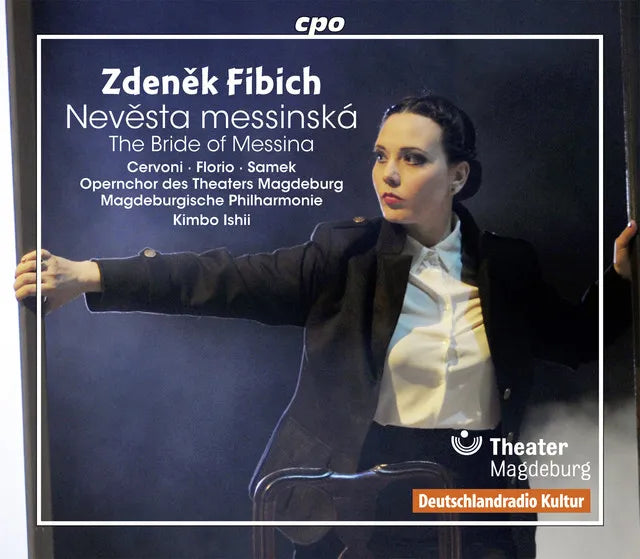Zdeněk Fibich Biography
Who is Zdeněk Fibich? A Brief Career Overview
Meet Zdeněk Fibich, the captivating Czech composer who has beautifully bridged the late Romantic era with modern classical sensibilities. Born in 1850, Fibich was a maestro of emotions, creating a rich tapestry of melodies that resonate with listeners to this day. While he might not be as widely recognized as his contemporaries like Smetana and Dvořák, his contributions to classical music are nothing short of groundbreaking--each note crafted with a passionate intensity that invites exploration. His works are celebrated for their heartfelt expressiveness, and his innovative approach has garnered renewed interest, especially among vinyl enthusiasts who cherish the warmth of analog sound. As we delve deeper into his story, we'll uncover the intricate layers of his life and music that make Zdeněk Fibich a true luminary in the classical realm.
Zdeněk Fibich's Early Life and Background
Zdeněk Fibich was born on December 21, 1850, in a remote rural town of Všebořice, surrounded by the enchanting landscapes of Bohemia. Growing up in a cultured family, his mother hailed from Viennese nobility, while his father served as a Czech forestry official, suggesting a rich blend of cultural influences in his upbringing. Home-schooled by his mother until he turned nine, Fibich's early exposure to music came through piano lessons, instilling a sense of rhythm and melody that would follow him throughout his life. His teenage years brought him to Prague, where he began to flourish musically, marking the genesis of his relationship with vinyl culture--an appreciation for artistry that would only grow as he matured into a prolific composer.
The Musical Influences That Shaped Zdeněk Fibich's Sound
The artistic voice of Zdeněk Fibich was significantly molded by the titans of music that came before him. Influences such as Richard Wagner, known for his revolutionary operatic techniques, and composers like Mendelssohn and Schumann resonated through Fibich's works, evident in his lyrical and harmonic complexity. His keen admiration for the vibrant textures of chamber music also drew him to collect influential vinyl records of the era, allowing him to immerse himself in the very sounds he sought to emulate. This eclectic mix of inspirations not only shaped his compositions but also nurtured a deep connection to the vinyl culture that remains relevant to his legacy today.
How Zdeněk Fibich Entered the Music Industry
Fibich's entrance into the music industry was a compelling narrative of talent and ambition. His first forays into music began as a childhood pastime, but it became a fervent passion after he ventured into a private music school in Prague. By the time he turned twenty, he had already composed his first opera, "Bukovina," and established his reputation within the artistic circles. Adapting to the challenges of the industry, he encountered the hurdles of producing and distributing music on vinyl--a medium that held a special place in his heart. His determination shaped his journey, allowing him to explore different genres and collaborate with a multitude of artists as he honed a distinctive sound that would define his later works.
Zdeněk Fibich's Breakthrough and Rise to Fame
The breakthrough for Zdeněk Fibich arrived with the release of his celebrated opera "Šárka," which captivated audiences and cemented his position in the classical music landscape. This opera, originally inspired by Czech themes, caused ripples of excitement, especially in vinyl editions that resonated with collectors and enthusiasts. The public and critical acclaim resulted in numerous performances, along with recognition from leading cultural institutions. Winning accolades and performing on larger stages, Fibich's work garnered significant media attention, catapulting him into the spotlight and ensuring his works were well-preserved in the vinyl format--an enduring testament to his artistry.
How Personal Life Shaped Zdeněk Fibich's Music
Zdeněk Fibich's personal experiences were as intricate as his compositions. His profound love story with student Anežka Schulzová influenced many of his works, as she wrote libretti for some of his most poignant operas. The emotional weight of his relationships, alongside the loss of his first wife and children, found expression in his music. Themes of love, longing, and introspection are beautifully interwoven within his pieces, especially in his extensive piano series, "Moods, Impressions, and Reminiscences." Fibich's commitment to social causes and community initiatives also reflects a compassionate side that colored his public persona, displaying his intention to connect with audiences beyond mere notes and rhythms.





























